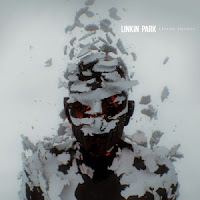[Time-sinks] Astronomy & Outreach
I thought I'd start my series of posts on where my time goes by talking about what is supposed to be my main occupation, and what I do for a living: Astronomy.
As I mentioned in my introduction post, I'm currently studying for a PhD in astronomy at the University of St Andrews. I'm about midway through my third year, which means that I have approximately one year of funding left, and a year and a half until the university force me to submit my thesis.
My PhD is in the area of Extra-Solar planets; that is, planets outside of our own Solar system. I work as part of the WASP project, which hunts for planets by looking for their transits across the face of the star that they orbit. This blocks out part of the light from the star, leading to a small decrease in the amount of light that we receive - about 1% for a planet the size of Jupiter around a star like the Sun. If we see this happening regularly, then we can say that there's a planet around the star. It has to be a U-shaped dip though; anything V-shaped, and/or more than a couple of percent deep means that it's more likely to be a binary star.
Binary star lightcurve on the top. Planet lightcurve on the bottom.
As part of this, I use the James Gregory Telescope at the University of St Andrews observatory to observe planet candidates (stars where we think that there might be a planet). Every month or so between September and April I spend a week as a night owl, sitting up at night to wait for the weather to clear. Being in Scotland this isn't very often, although since we're on the east coast it's slightly more often than you might think. Plus St Andrews seems to have its own micro-climate anyway! In the middle of winter a full night can be 12 hours long, which is a bit of a drag, but at the start and end of the season it's only 5 or 6 hours. We don't observe over the summer at all; in July there are only a couple of hours of full darkness, which isn't really enough time to see any transits.
The James Gregory Telescope inside it's dome. Another telescope dome is visible in the background. (credit: Aaron Robotham)
So far I've helped to find 7 planets, out of the 82 that WASP has found since 2006. I'm really pleased with that, considering I've only been involved for 2.5 years. The planets that WASP finds tend to be hot Jupiters - gas giants like Jupiter, but at the same distance or closer to their star than Mercury is to the Sun.
But looking for planets is only part of my job. I also look at the interactions between planets and their host stars. My first published paper was on the tides between hot Jupiters and their host stars, and my 2nd and 3rd will be on the angles between planetary orbit and stellar spin axes. These are both important in understanding how planets, particularly hot Jupiters, get to be where we find them, which itself has interactions for our understanding of the formation of the Solar System.
As well as all of this work, I'm also heavily involved in outreach. I'm coordinator for the Astronomy group's planetarium (Website. Sorry it's out of date.), organising visits to primary schools and youth groups all around Fife. I run about one visit per month to keep the time demands low, but I'm slowly pushing that out to two per month because I really enjoy doing it, and hate turning people down. I love getting kids enthusiastic about space and the stars, and the 'oohs' and 'aahs' when I turn the lights off in the planetarium dome is always worth the travelling. We also put on shows in the Physics department during the annual space school, and during the open day event that the department runs as part of Fife Science Festival. The last bits of outreach that I get involved in are the biannual observatory open nights.
The Earth from space (credit: Rosetta mission, ESA)
Outside of all of this I actively follow astronomy and space news. It was Hubble pictures that originally sucked me into astronomy when I was a child, and I eagerly look at Astronomy Picture of the Day every morning to see what wonderful pictures are out there. NASA use twitter heavily, as do ESA, and there are a great number of blogs out there dealing with astronomy (some of them are in the sidebar on the left). Space exploration is also something that I'm interested in, particularly as it pertains to human space-flight, and it saddens me that we're heading further and further towards robotic exploration. The stars fascinates me, and I love learning about new discoveries out there in the black ocean. I guess that that's what makes me a scientist. I enjoy finding out about new things, and love the area that I work in. Loving the work though is another question...






Comments
Post a Comment